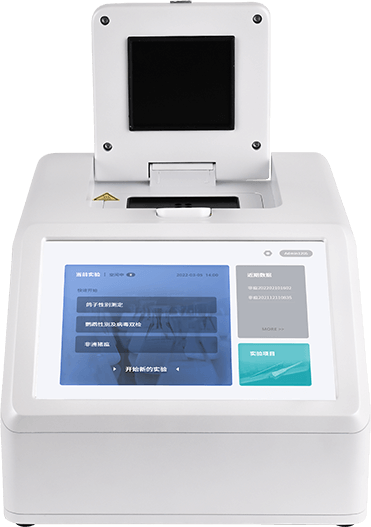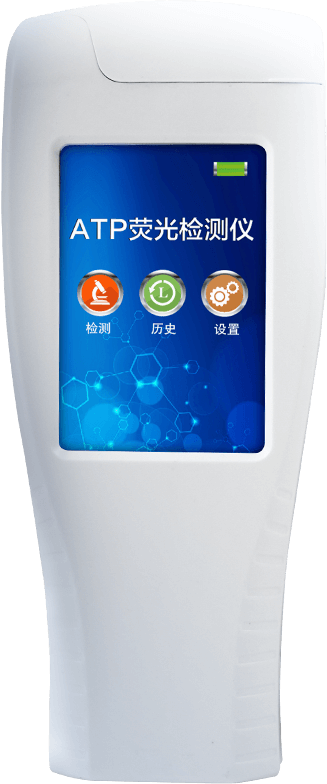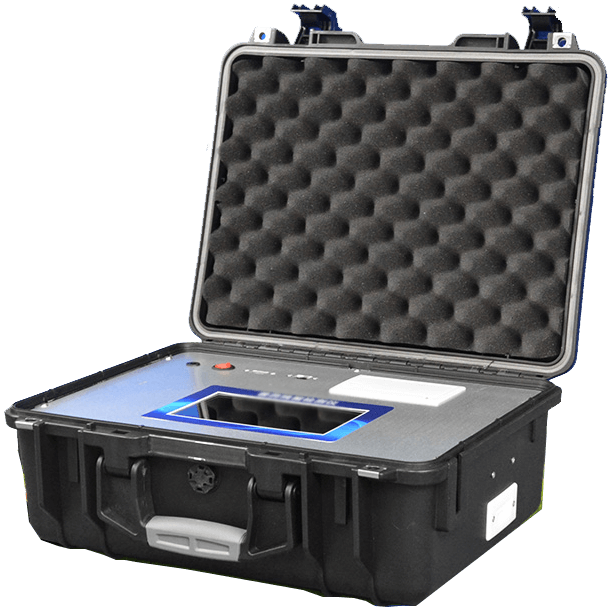
Fluorescent Quantitative PCR Instrument
- Product Number:LD-P16
- Product Difference:Sample capacity: 16 × 0.2 mL Rapid analysis of target nucleic acids present in biological samples (e.g., blood, bodily fluids) extracted from animal specimens
Product Introduction
The quantitative PCR instrument is primarily used to perform real-time quantitative PCR experiments. By stimulating and collecting fluorescence signals, it enables real-time monitoring of the experimental process. Experimental data is plotted into fluorescence curves and displayed in real time on the instrument interface. The instrument then performs data fitting and analysis, ultimately generating a PDF-format experimental report.
It enables rapid and precise qualitative and quantitative analysis of target nucleic acids present in biological samples (such as blood or bodily fluids) extracted from other animals. Additionally, it supports analyses of special samples including standard curve fitting, melting curve analysis, and genotyping.
Polymerase Chain Reaction (PCR) is a molecular biology technique for amplifying specific DNA segments. It functions as an in vitro DNA amplification method, comprising a temperature cycle consisting of high-temperature denaturation, low-temperature annealing, and optimal-temperature extension. This process enables rapid amplification of target genes with high specificity, sensitivity, ease of operation, and time efficiency, representing a major innovation in gene amplification technology. PCR can amplify minute amounts of target DNA millions of times, significantly enhancing the analysis and detection capabilities of DNA molecules.
Real-time fluorescent quantitative PCR technology incorporates fluorescent dyes or fluorescently labeled probes into conventional PCR. By monitoring changes in fluorescent signals during the PCR reaction, it enables real-time detection of the entire PCR process. This method uses fluorescent chemicals to track the total product volume after each PCR cycle, allowing quantitative analysis of specific DNA sequences in samples through internal or external controls.
Applications include: fundamental scientific research, pathogen detection, animal disease surveillance, meat adulteration detection, genetically modified organism (GMO) testing, food hygiene inspection, drug development and rational drug use, gene expression analysis, and water quality monitoring.
Product Features
Real-time dynamic monitoring: Visualize the entire experimental process with automatically generated fluorescence amplification curves.
Multi-dimensional analysis: Supports professional analyses including standard curves, melting curves, and genotyping to meet complex detection requirements.
Features high specificity, sensitivity, ease of operation, and time efficiency.
High-definition touchscreen operation requires no training for effortless use.
Efficient report generation with automatic PDF report creation.
Product parameters
| Product Name | P16 | P32 | P48 |
| Appearance | |||
| Dimensions | 235mm*385mm*175mm (W*D*H) | ||
| Weight | 5.6kg | 5.7kg | 5.8kg |
| Electrical Parameters | ~220V/50Hz, 255W | ||
| Data Interface | USB 2.0 *2 (right side) | ||
| Environmental Parameters | |||
| Operating Conditions | Temperature: 10-30°C, Humidity: 20%~80% | ||
| Transportation and Storage Conditions | Temperature: -20~55℃, Humidity: 20%~80% | ||
| Altitude | <2500 meters | ||
| Noise Level | A-weighted, < 60dB | ||
| Sample Parameters | |||
| Sample Capacity | 16*0.2mL | 32*0.2mL | 48*0.2mL |
| Tube Type | Single tube, Eight-well strip | ||
| Sample Volume | 15-100μL | ||
| Temperature Characteristics | |||
| Heating/Cooling Method | Semiconductor heating/ Cooling | ||
| Temperature Range | 4°C-99°C | ||
| Maximum Heating Rate | ≥3.5°C/s | ||
| Average Heating Rate | ≥2.5°C/s | ||
| Maximum Cooling Rate | ≥3.5°C/s | ||
| Average Cooling Rate | ≥2.5°C/s | ||
| Temperature Control Accuracy | ≤±0.01℃ | ||
| Temperature Accuracy | ≤±0.1℃ | ||
| Temperature Uniformity | ≤±0.3℃ | ||
| Optical Characteristics | |||
| Number of Fluorescence Detection Channels | 2 channels | 4 channels | 4 channels |
| Light-Emitting Device | High-brightness LEDs | ||
| Light-collecting Device | High-sensitivity, high S/N ratio photodiodes | ||
| Compatible Probes or Dyes | Channel 1: 470/520 FAM, SYBR Green Second Channel: 530/570 HEX, JOE, VIC Third Channel: 580/610 ROX, CY3.5, Texas-Red Fourth Channel: 630/670 CY5 | ||
| Detection Sensitivity | 1 copy | ||
| Linear Detection Range | 100~1010 copies | ||
| Linear Correlation Coefficient | ≥0.999 | ||
| Channel Crossover Interference | No Interference | ||
| Detection Repeatability | ≤1.0% | ||


 +86 19353291814
+86 19353291814


